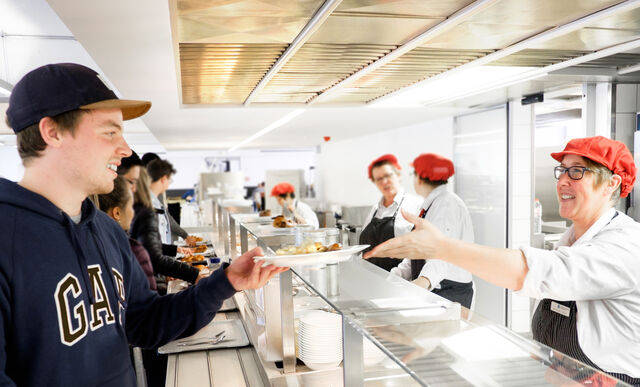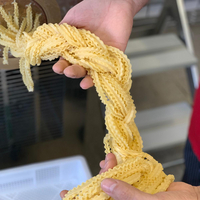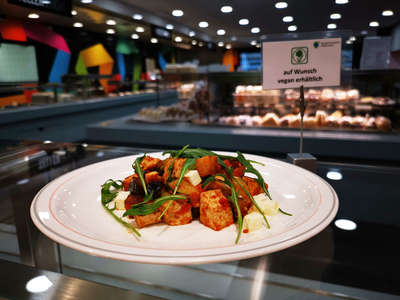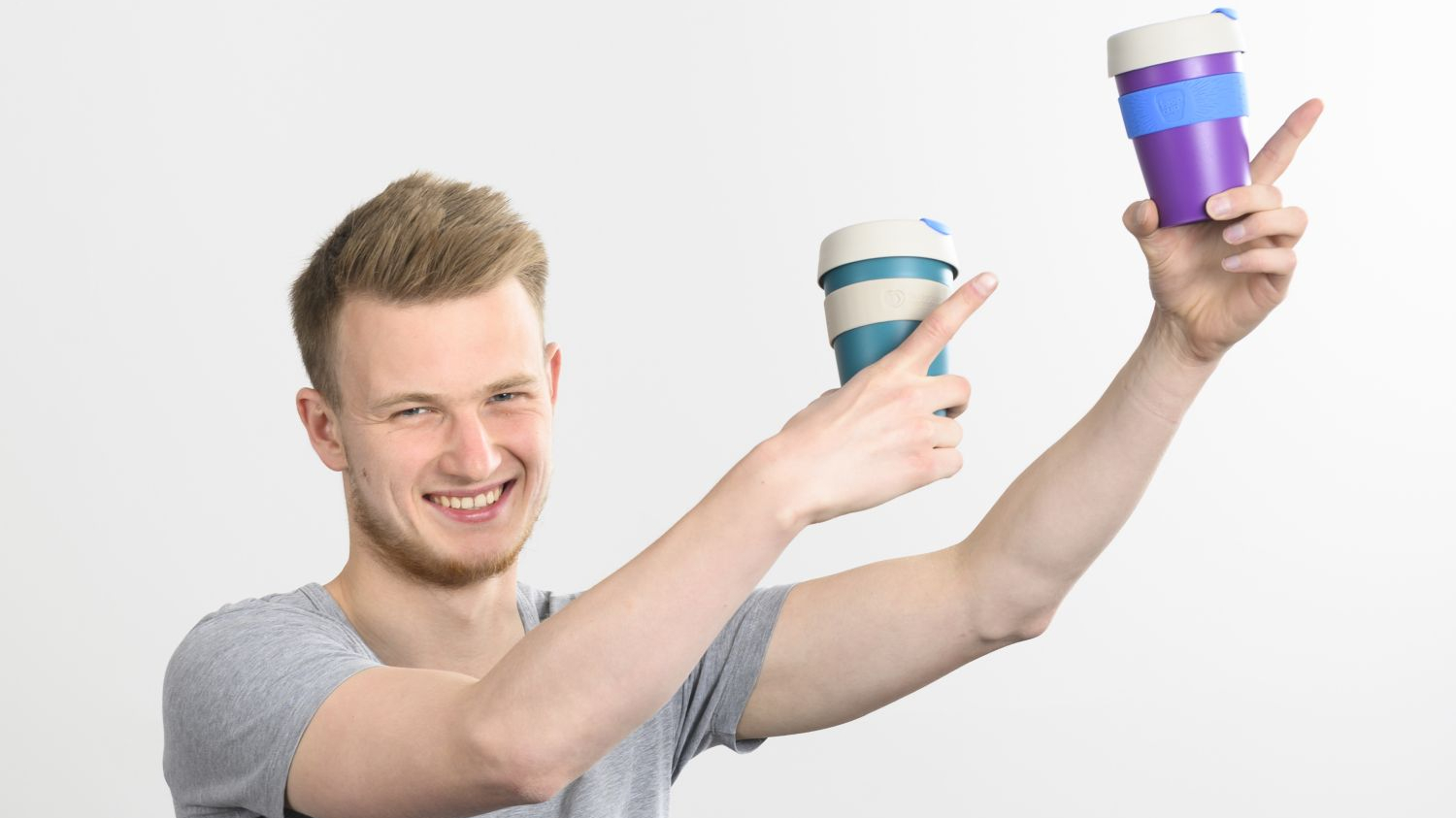
Eggs from cages are not on our table. The potatoes come from regional production and for fish we use mostly products from sustainable fisheries.
We can't always rely on regional suppliers, as we need large quantities of food for up to 50,000 meals a week. But we try where we can.
We support sustainable and certified fishing and prefer to buy fish and seafood from stock-friendly catches or breeding.
We think meatless food is good and support our guests with a varied selection of vegetarian dishes. At least one vegetarian alternative is on the menu every day.
Those who follow a vegan diet will also find what they are looking for every day in our dining halls and cafeterias. Look for the "Vegan" label on the menu and use the menu filter. Important: There are dishes that are vegan by request if an extra ingredient of animal origin is omitted from the serving (for example, a dollop of sour cream in a soup or grated cheese in pasta dishes). So don't be surprised if a dish has both "vegan" and "contains dairy" labels - the choice is yours!
Our diverse vegetarian and vegan offerings improve the carbon footprint of our dining experience. Around 80 percent of our offerings are now vegetarian or vegan. Our commitment pays off: For example, the animal welfare organization PETA regularly awards us as "vegan-friendly".
Around one fifth of all greenhouse gas emissions in Germany are caused by food. We want to help reduce these emissions. That is why we have had a climate plate in our refectories since June 2021.
Dishes that cause 50 per cent less emissions than the average of conventional dishes are designated as "climate plates" on our menu. Our recipes are checked in a database by "KlimaTeller" and the operator eaternity. This is how the "KlimaTeller" finds its way onto our menu almost daily.
Guests who want to eat in a climate-friendly way can easily find the "KlimaTeller". On site in the refectories, it is marked by signs with our Or set the "KlimaTeller" filter in the "StudiFutter" app and find dishes. Climate protection starts on the plate.
More information on the "KlimaTeller" can be found on the website.
Also good for your personal carbon footprint - switching from cow's milk to oat milk. It has a much better CO2 footprint. We support our guests in this: in all our establishments you can already get your normal coffee with oat milk. Without any surcharge. We are also gradually converting the speciality machines. For example, the Mensa Garbsen and Mensa Caballus now also offer cappuccino and latte macchiato with oat milk. Other establishments will follow.
We are working together with our guests to ensure that the disposable paper cup "to go" will soon be a thing of the past in our refectories and cafeterias. There is therefore a wide range of alternatives in our establishments:
- With the "KeepCup", we offer a practical reusable cup with lid at cost price of 9.50 euros. When you buy the cup, the first hot drink is free!
- We have now introduced the "Hannoccino" deposit cup system in all our locations.
- And of course, guests can bring their own clean reusable cup and have it filled at any time.
To create an additional incentive to do without the disposable cups, we offer a 10 cent discount on every hot drink in a reusable cup!
Our efforts are proving successful: over 60 percent of our guests now use a reusable cup! This means that the reusable cup quota in our establishments has doubled within two years. We are very proud of this - and thank our students and guests for their commitment!
For "Besseresser", we offer food to go in the practical reusable bowl in our dining halls. Our reusable bowls cost seven euros deposit and are: BPA-free, food safe, dishwasher safe, freezer safe, microwave safe (only the bowl). So Mensa to go goes without a guilty conscience and without packaging waste.
Currently, there are also disposable take-away boxes, but these are leftovers. Once they are used up, food to go is only available in reusable boxes. Of course, our guests can also bring their own take-away boxes.
The only important thing is to make sure that everything that has to be weighed in the refectories first has to be put on a plate so that it can be properly weighed at the checkout. Then, for example, the "salad to go" can also be packed in the box.
From 30 May 2022, we will say "goodbye" to plastic packaging for our bread rolls in all canteens and cafeterias and offer them permanently only unpackaged on a plate. If you want to take your roll with you, you can use the bags provided on site.
Good to know: The plastic bags on display are leftovers that we are using up for the time being in the interest of sustainability. In the long term, we will switch to paper bags at all locations.
We do not currently see the use of "bio-plastics" as a substitute for current packaging as being conducive to achieving our goals. Plastics made from renewable raw materials are no more environmentally friendly as waste than conventional plastics. And "biodegradable" plastics are only degradable if they are collected separately and specifically treated in composting plants.
We are currently working on new solutions and examining alternatives.



